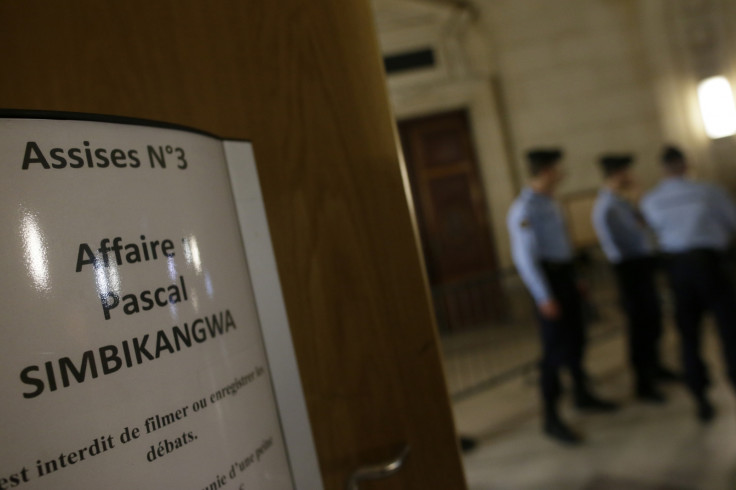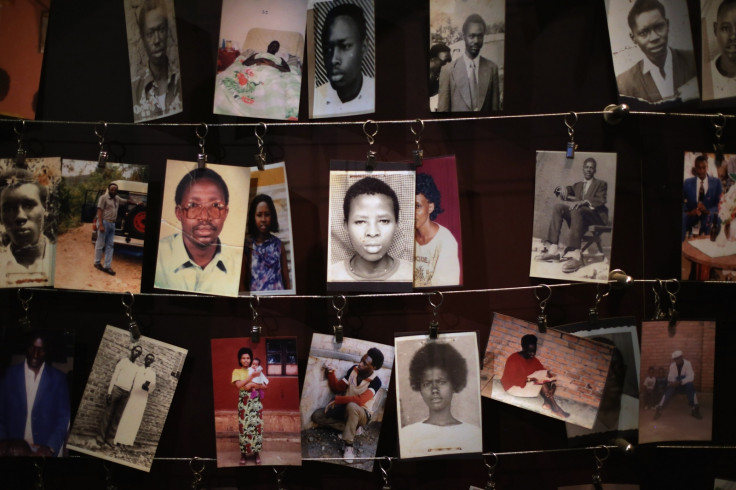French court rejects former Rwandan spy chief's bid to drop genocide trial
Already sentenced to 25 years, the prosecution believe Pascal Simbikangwa should face a harsher penalty.

A French court has rejected the request made by a former Rwandan spy chief, who faces retrial in Paris on genocide charges, to have the case dropped.
The first "historic" probe to be handled by the Paris prosecutor's specialised war crimes units was that of former Rwandan intelligence chief Pascal Simbikangwa, 56, who was sentenced in March 2014 to 25 years in solitary confinement over his role in the 1994 Rwandan genocide, one of 20th century's greatest atrocities.
Described as a "genocide denier" and steeped in "extremist Hutu ideology", Simbikangwa appeared before the Seine-Saint-Denis Assize Court in Bobigny (north-eastern of Paris) on Tuesday (25 October) after the prosecution appealed against his first conviction as they believe he should face a harsher penalty.
On the first day of his trial, due to last 32 days, his defence team requested the lawsuit was dropped for a perceived "inequality of arms" with the prosecution.
Having previously said their client was the victim of a "witch-hunt", Simbikangwa's lawyers claimed the defence only has "derisory" means compared to the Paris prosecutor's office, which set up a specialised unit to investigate crimes against humanity.
The court rejected the request, saying that it was not up to tribunal to "decide on the components of a fair trial", according to AFP news agency. His trial continues.

On 26 October, Simbikangwa, who is wheelchair-bound after a 1986 car accident left him paralysed, told court that his case had "been fabricated."
The genocidaire faces life imprisonment in this second trial, in which around 50 witnesses, who testified in 2014, are expected to be heard. Some, currently imprisoned in Rwanda, will be heard by video link. Hearings should last until 9 December, according to AFP news agency.
During his first trial, the prosecution said Simbikangwa gave detailed instructions about which Tutsi families and political opponents to kill and how they should be murdered. He was also accused of helping to supply arms to ethnic Hutu militia groups, which set up road blocks around Kigali in 1994.
The former spy chief's lawyer Fabrice Epstein in 2014 said the judgment was "politically motivated".
In the latest string of condemnations of Rwandans accused of orchestrating the massacre of hundreds of Tutsis during the genocide, a Paris court in July convicted former mayor Octavien Ngenzi , 58, and his predecessor Tito Barahira, 64, of "massive and systematic summary executions" and genocide in the village of Kabarondo, where some 2,000 ethnic Tutsis seeking refuge in a church were bludgeoned and hacked to death.
While the pair both denied the charges, the court sentenced them to life in prison – the harshest genocide sentence ever handed out by a French court.
The 1994 atrocities claimed at least 800,000 lives.
© Copyright IBTimes 2025. All rights reserved.






















